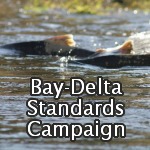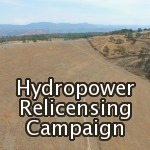Article from Adventure Journal.
By staff | March 11, 2022
Normally, we wouldn’t necessarily cover the induction of regional luminaries into a state’s outdoor hall of fame, but this 2022 class of the California Outdoor Hall of Fame is a stunner. We’re publishing the COHOF statement for the class of 2022 here in its entirety. -Ed.
***
A 19th-century woman who wrote of trails and travels to California and who influenced the preservation of Yosemite and a 21st-century woman who hiked the Appalachian, Pacific Crest and Continental Divide National Scenic Trails each three times in record time are among five outdoorswomen and men inducted to the 2022 Class of the California Outdoors Hall of Fame.
Jessie Benton Frémont (Los Angeles) and Heather Anderson made their marks on California’s outdoors two centuries apart. Frémont gained national fame for turning her husband’s (John C. Frémont) explorations west into best-selling books, then used her fame and connections to protect Yosemite Valley and the Mariposa Grove of Big Trees. While, Anderson set records with speed-hiking our nation’s most challenging alpine trails.
Joining these ladies in the 2022 Class are Bob Simms of Placerville, a broadcaster for 50 years and consummate sportsman who has challenged government agencies in his quest to advocate for the sportsman; Greg LeMond the first American to win the Tour de France and a passionate critic of doping in cycling; and Bill Jennings a Delta fisherman who has worked tirelessly for four decades to protect water rights, water quality and fishery permitting.
Each inspired thousands to take part in outdoor adventures and conservation and took part in a paramount scope of personal adventures. These five are among over 90 celebrated California outdoorsmen and women who have been inducted to the Hall, since its establishment in 2002.
Here are this year’s inductees:
Greg LeMond – Born in Lakewood, Calif., Greg LeMond grew up on the eastern slopes of the Sierra Nevada where he hiked, hunted, skied and fly fished, admitting, “I was a boy who just could not sit still.”
Afflicted with ADHD, he was unable to get help from parents or teachers, but when he began riding a bike, it changed his life. He rode his bike everywhere, often riding to school by climbing over Mount Rose pass.
At 17 LeMond finished second in the Tour of Fresno and was selected as the youngest member of the US Olympic Cycling Team. His debut as a pro was to win a stage of the Tour de France in 1981 and in ’84 he won the Tour’s Young Rider jersey and placed second overall. Two years later, he was the first American to win the Tour de France.
LeMond won two more Tours thereafter, but when his team recommended that he dope his blood like other successful riders were then doing, he refused and became an outspoken critic of performance-enhancing drugs in cycling. LeMond admitted that the prevalence of doping among athletes shortened his career.
Thereafter, he established LeMond Cycles that innovated carbon fiber frames, LeMond Fitness to help individuals train more effectively and LeMond Composites to manufacture high-volume, low-cost carbon fiber composites. Today he stands as the most influential American cyclist in history.
Bill Jennings – Arriving in California in the early 1980s, Bill Jennings founded the Delta Angler and quickly became involved in protecting fisheries. He labored in the trenches of state and federal water rights, water quality, and fishery permitting processes for nearly four decades. Jennings authored myriad comment letters, protests, and petitions and frequently testifies in evidentiary proceedings, and manages an aggressive enforcement campaign that has generated millions of dollars for restoration projects.
Following a massive fish kill, Jennings co-founded Committee to Save the Mokelumne and served as its Chairman. He has Chaired the California Sportfishing Protection Alliance since 1988 and been its Executive Director since 2005. Between 1995 and 2005 he served as Delta Keeper. He is a Board Member of the California Water Impact Network and was one of the original founders and Board Member Emeritus of Restore the Delta.
Jennings has received numerous acknowledgments including the International Conservation Award from the Federation of Fly Fishers, the Director’s Achievement Award from the Department of Fish and Wildlife, the Conservation Achievement Award from the California-Nevada Chapter of the American Fisheries Society, the Quality of Life Award from the Land Utilization Alliance, and the Delta Advocate Award from Restore the Delta. The Outdoor Writers Association of California recognized him as Outdoor Californian of the Year and the Delta Fly Fishers selected him as Fly Fisherman of the Year. His efforts in obtaining an historic cleanup of Penn Mine on the Banks of the Mokelumne River led to awards by California Water Policy IX Conference.
Bob Simms – Considered to be a legend by those who have listened to his information-packed radio program, Bob Simms speaks for the sportsman in one of the most important markets in California … Sacramento. As, that’s where public lands policy is made.
Bob Simms has been reporting about the outdoors on radio, television and in print for over 50 years. The Bob Simms Outdoors Show on KFBK-1530AM (5 – 8 a.m., Sat.) has been on the air for 32 years and is the top-rated radio program in its time slot in Northern California, exclusive of the Bay Area.
Simms is an advocate for the sportsman and woman, keeping public lands agencies accountable for their practices. He is a voice for wildlife politics, defending hunting and fishing as a revenue-producing, environmentally friendly resource management tool to policy makers and lands agency managers based in Sacramento.
His show is a forum in outdoor sports and recreation with sportfishing skippers, guides, outfitters, marina operators, hunters, retailers, public lands managers and sportsmen able to voice what’s happening and, more importantly, what should be happening.
He advocates for them and for the resource, speaking a lot about wildlife, conservation and stewardship and he looks out for sportsmen. When Simms learned that the soldiers guarding Saddam Hussein’s palaces and their many lakes and ponds had no fishing gear, he arranged for loads of rods, reels and tackle to be shipped to them.
Bob not only speaks outdoor sports, he lives it. Simms travels the breadth of California when he’s not on the air, to experience the outdoors and meet the people who support it. An accomplished outdoorsman who is self-taught, he’s mastered every type of fishing and hunting and knows every corner of California. Simms is so familiar with the backwoods that he’s often able to recite who owned a given ranch and the history of the location.
Heather Anderson — Heather Anderson is the only woman to have completed the Appalachian, Pacific Crest and Continental Divide National Scenic Trails each three times. This includes her historic Triple Crown hike in 2018 when she hiked all three of those trails in one March-November season, making her the first woman to do so.
She holds the overall self-supported Fastest Known Time (FKT) on the Pacific Crest Trail. She also holds the female self-supported FKT on the Appalachian Trail (AT), and the Arizona Trail. She has logged over 40,000 foot-miles since 2003 including 15 thru-hikes and many ultramarathons. She is also an avid mountaineer and peak bagger working on several ascent lists in the US and abroad.
A professional speaker, Anderson speaks regularly about her adventures and the lessons learned on trail. She is the author of Thirst: 2600 Miles to Home chronicling her Pacific Crest Trail record and Mud, Rocks, Blazes: Letting Go on the Appalachian Trail about her 2015 AT record. She also co-authored a guide to long-distance hike preparation with Katie Gerber called Adventure Ready: A Hiker’s Guide to Training, Planning, and Resiliency.
Jessie Benton Frémont — Yosemite National Park, indeed the entire National Park System, might not exist today were it not for the influence of Jessie Benton Frémont.
Married to John C. Frémont and the daughter of the most influential Democratic senator of the mid 1800s, Thomas Hart Benton, she influenced such luminaries as Horace Greeley, Thomas Starr King, Richard Henry Dana Jr., Carleton Watkins and U.S. Sen. Edward Baker to join Galen Clark and Sen. John Conness in urging Congress to set aside Yosemite and its Giant Sequoias in what comprises the heart of Yosemite National Park, today.
In 1864 at the height of the Civil War, following her personal entreaties to President Abraham Lincoln (they knew each other well), Lincoln signed the Yosemite Grant, the first instance of land being set aside specifically for its preservation and public use by a national government. It was an extraordinary idea, proposed in extraordinary times, in part by an extraordinary woman.
Pulitzer Prize-nominated journalist and historian Craig MacDonald asked, “If not for what she did behind the scenes (during an age when women did not have the vote or any voice in public life), would there be a Yosemite National Park today, would John Muir have been drawn to the Valley because of the attention given it by its protection, would there have even been the foundation necessary to lead to establishing national parks?”
The Yosemite Grant set the foundation not only for the national parks, but for the California State Parks, as well. Still today, the words “Since 1864” are inscribed on the California State Parks symbol, a reminder of what this California heroine helped set in motion.
Before her work to protect Yosemite, Jessie Benton Frémont grew up on the frontier in Missouri and was the pen behind John C Frémont’s widely read reports of his western expeditions. She followed that up with best-selling stories of his adventures that made her and her husband uber celebrities in their day. Her words inspired hundreds of thousands to venture west.
She was prolific throughout her life, writing A Year of American Travel about her 1849 trek to California and regularly contributing to national magazines. Through her writings, she added an early feminine voice to the history of California’s outdoors. Jessie Benton Frémont is buried in Los Angeles, her adopted home.
For more, visit the California Outdoors Hall of Fame.
Top photo: Greg Lemond riding on the lower slopes of Alpe D’Huez during the Tour De France, July 1991. Credit — Steve Selwood/Wikipedia









